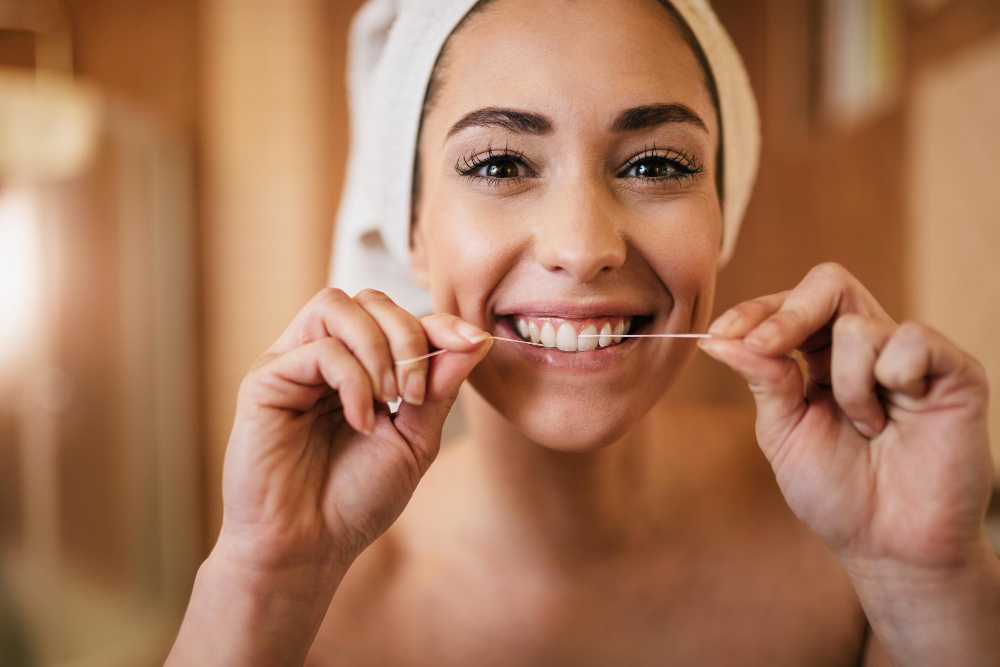Maintaining excellent oral hygiene is crucial for preserving your teeth and gums in pristine condition. Cultivating healthy habits early in life sets the foundation for a lifetime of dazzling smiles. Essential practices include brushing, flossing, attending regular check-ups, and avoiding factors that can damage your teeth. Improper care or treatment can result in tooth decay, speech difficulties, tooth loss, malnutrition, and diminished self-esteem. This comprehensive guide explores essential dental care tips, grouped into key areas, to maintain the health and vitality of your teeth, gums, and mouth, supported by authoritative sources and scientific research:
Effective Dental Hygiene Techniques
- Master the Art of Brushing
Brushing your teeth eliminates food particles and plaque—a harmful white film that accumulates on your teeth after eating. Plaque harbors bacteria that generate acids, attacking tooth enamel and eventually causing cavities and gum issues. Ensure that you brush your teeth using a gentle, circular motion, focusing on both the upper and lower teeth. Pay special attention to the gum line, inner and outer surfaces, and the chewing surface of each tooth. - Don’t Forget to Floss
Toothbrushes, regardless of their design, cannot reach all areas necessary for optimal dental protection. Flossing daily removes plaque from below the gum line, preventing enamel erosion and tartar development. Flossing reduces your risk of cavities, alleviates soreness, and wards off gum disease. Tooth decay is a prevalent global issue that can be easily avoided by following these basic steps, allowing you to retain all your teeth.
The Importance of Dental Care Products
- Choose a Toothpaste with the Right Amount of Fluoride
Contemporary toothpaste provides a variety of benefits such as whitening power and sensitivity reduction. When selecting a toothpaste, opt for one that contains an appropriate amount of fluoride, which is a mineral known to fortify teeth and make them less prone to decay. Since the 1950s, the American Dental Association has advocated for the use of fluoride in toothpaste, recognizing it as a safe and effective ingredient when used in recommended quantities to protect your teeth. Remember to follow the recommended usage guidelines and consult your dentist if you have any concerns about fluoride intake. - Choose the Right Toothbrush and Replace it Regularly
Selecting an appropriate toothbrush is vital for effective cleaning. Opt for a toothbrush with soft bristles, a suitable head size for easy access to all teeth, and a comfortable handle. Electric toothbrushes are an excellent option for individuals who struggle with manual brushing. Over time, toothbrush bristles wear down and become less effective at removing plaque and food particles. To maintain optimal oral hygiene, replace your toothbrush every three to four months, or sooner if the bristles appear frayed. - Incorporate Tongue Cleaning and Mouthwash Use
Cleaning your tongue is essential for removing bacteria and preventing bad breath. Utilize a tongue scraper or toothbrush to gently clean the surface of your tongue. Additionally, incorporating mouthwash into your dental care routine can enhance your oral health. Mouthwash varieties, such as antibacterial, fluoride, or natural alternatives, complement brushing and flossing for comprehensive protection.
Lifestyle Factors Affecting Oral Health
- The Significance of Regular Dental Check-ups
Scheduling consistent dental visits is crucial for monitoring your oral health, encompassing your teeth and gums, and preventing the onset of gum disease. Gum disease is highly preventable with proper oral care, and regular check-ups can help you understand the difference between gingivitis and periodontitis. If gum disease develops later in life, your dentist can create a suitable treatment plan tailored to your unique situation. A recent CDC report reveals that 47.2% of adults aged 30 years and older in the United States have some form of periodontal disease. The prevalence of this condition increases with age and is influenced by factors such as gender, socioeconomic status, education level, and smoking habits. - Minimize Teeth Staining
Discolored, stained teeth can detract from the appearance of your smile. Reduce the impact of staining by limiting the consumption of foods and beverages that cause discoloration, such as cola, coffee, red wine, and tea. When consuming these beverages, opt for a clean, reusable straw to minimize staining on your front teeth. Regularly drink water and rinse your mouth throughout the day, particularly after consuming acidic beverages like lemonade. - Control Your Sugar Intake
Sugar reacts with bacteria in plaque, producing copious amounts of acid that contribute to tooth decay and cavities by dissolving the protective layer of enamel. Tooth decay can lead to abscesses and tooth loss, and excessive sugar consumption is often associated with various health issues. If indulging in a sweet treat, consume it immediately after a meal, and brush your teeth 30 minutes later to remove any residual food particles. - Stay Hydrated
Saliva plays a crucial role in protecting your teeth by washing away leftover food and maintaining a healthy oral environment. Drinking water, especially fluoridated water, supports saliva production and strengthens teeth by replenishing phosphorous and calcium levels in tooth enamel. - Emphasize a Nutritious Diet
A balanced, nutrient-rich diet contributes to better oral health. Consume teeth-strengthening foods like dairy products, leafy greens, and fibrous fruits and vegetables. Limit intake of sugary and acidic foods that can erode tooth enamel and promote decay. For a more comprehensive approach, consider professional dental sealants and fluoride treatments for individuals at high risk of tooth decay.
Conclusion
By adhering to these essential dental care tips, you can maintain a healthy and vibrant smile. Prioritize proper brushing and flossing techniques, regular dental check-ups, and a nutritious diet. Incorporate tongue cleaning, mouthwash use, and hydration to promote overall oral health. Stay informed about the difference between gingivitis and periodontitis, monitor your sugar intake, and learn about post-procedure diet after wisdom teeth removal. Be mindful of staining foods and beverages, and remember to replace your toothbrush regularly. By implementing these best practices, you will ensure a lifetime of strong teeth and a brilliant smile.

